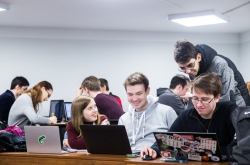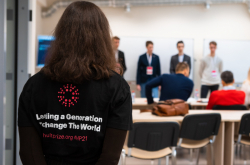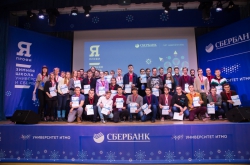Over the course of two weeks, the participants studied the entire product development lifecycle: from generating and evaluating business ideas to conducting market research, competitive and needs analysis, as well as building their first MVPs. Throughout the entire journey, they were assisted by ITMO Technopark experts Konstantin Khomchenko and Maksim Makarov.
“What the school gives students can be applied to any project. For instance, these skills will come in handy if they plan to launch a startup or develop an existing one further. Moreover, many entrepreneurs rely on the product approach when creating their products because a good product is the one that people will use, and knowing how to identify what people need is a vital skill in today’s world,” says Maksim Makarov.
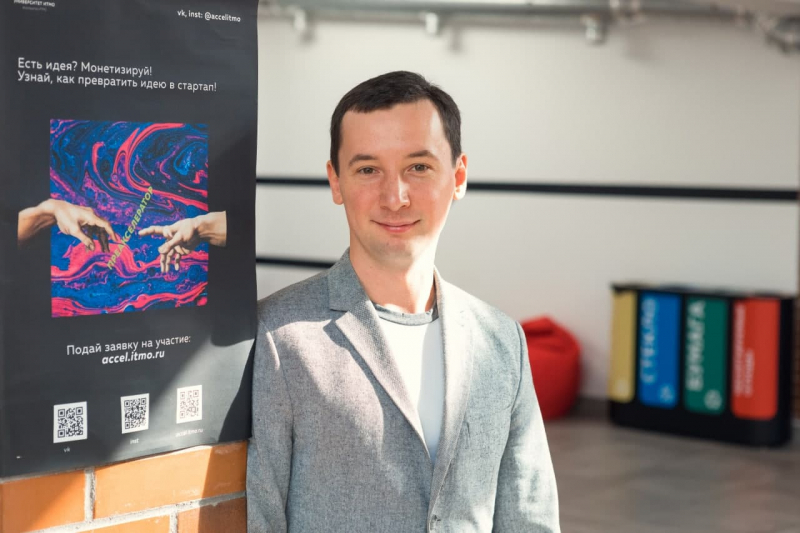
Maksim Makarov. Photo by ITMO.NEWS
On the first day, the students teamed up to work out ideas for their potential products or services. Many projects offered focused on such topics as lean production, recycling, or environmental problems in general.
One of the innovations introduced this year was a change of roles. The participants were given an opportunity to review each other’s projects, exchange feedback, and pitch their ideas to each other rather than an expert board. Apart from that, the students received valuable feedback on Demo Day from the jury that consisted of Alexey Solomatin, the head of ITMO Accelerator, Igor Kuprienko, the head of ITMO’s Project Development Department, and Henrik Dombovari, an organizer of the *ship festival.
“Usually, students come to us with no business ideas and leave with finished projects and business plans. This year’s school was even better than the previous one. We tested new formats, updated our program, and figured out how to efficiently run this course online. It was a valuable experience. As for the students, they had the chance to study different business strategies. Learning how business is done in other countries indeed helps aspiring entrepreneurs expand their horizons and boost their skills,” comments Alexey Solomatin.
ITMO.NEWS talked to the students to learn more about their projects.
Ivanna Polo
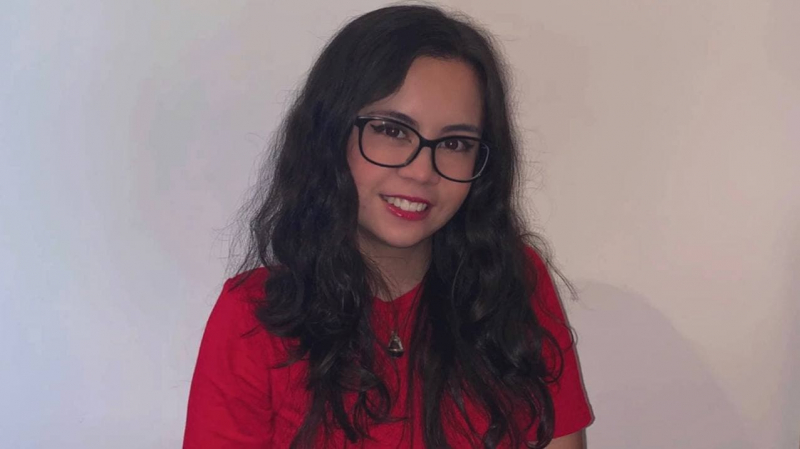
Ivanna Polo. Photo courtesy of the subject
When choosing a topic for our project, we tried to pick something that has a direct impact on our lives. We wanted to have some sense of where to start, what opportunities to target, and how we could stay motivated along the way. That’s why we chose traffic issues. As residents of big cities, we all are well aware of this problem.
Our project’s main objective is to improve urban mobility. We proposed a special service that would regulate traffic flow so that people could spend less time in traffic jams. It will help remedy other problems, too, such as economic loss, environmental pollution, and poor quality of life. We managed to gather all the information needed to present our project to the expert board and even developed a prototype. I’d say we did well.
I’m happy with the results. I had a great time and learned a lot from others. What’s more, we had quite useful and informative materials and were able to put our knowledge into action right away. It was even better than I could imagine.
Isabella Vasquez
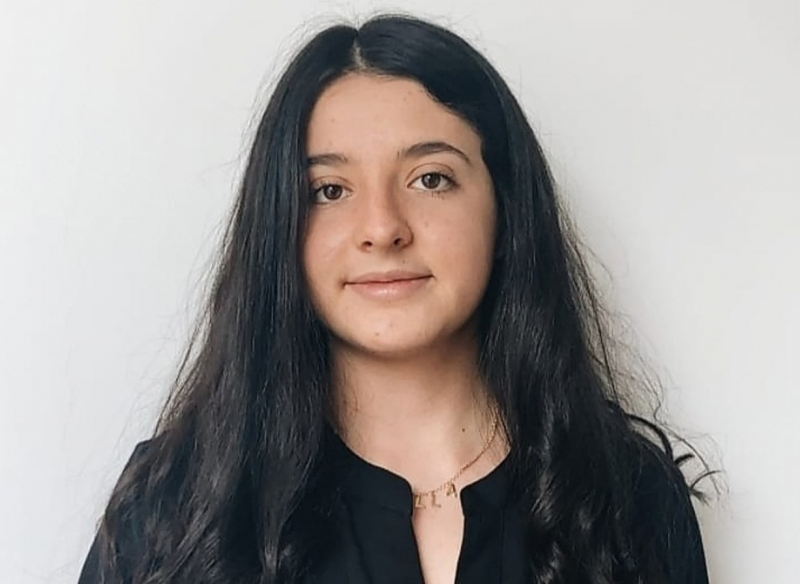
Isabella Vasquez. Photo courtesy of the subject
Our team chose online learning because this sector has shown significant growth due to the ongoing pandemic. We developed a service that lets users create a personalized learning experience. During the two-week course, we created an MVP and presented it to our potential customers to collect some feedback. We also received valuable advice from the jury on Demo Day.
The winter school helped me understand that it’s not enough to have a business idea – you should also know how your project can help people and what results you would like to achieve with it.
Alexander Morozov

Alexander Morozov. Photo courtesy of the subject
We went with the issue of excessive choice in online learning for our project, mainly because we wanted to solve a problem that was bothering us, too. As a result, we came up with a service to help learners organize their online education.
We had one day to build a product prototype. I had to create an MVP and a landing page for our product. I think it turned out quite good considering how much time we had.
I absolutely loved how many practical tasks we had during the course. No one likes to just sit and stare at the screen listening to monotone speakers for four hours straight. Mussa Nuryshev, Maksim Makarov, and Ionna Avagyan (the winter school’s mentors – Ed.) managed to make classes interactive and engaging, and it was a big pleasure to learn from them.



